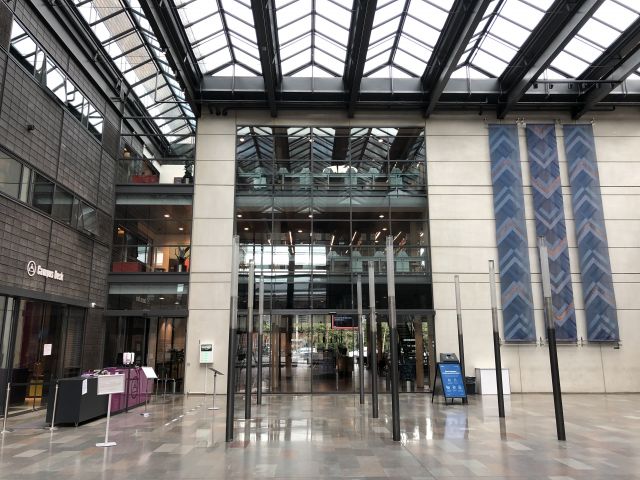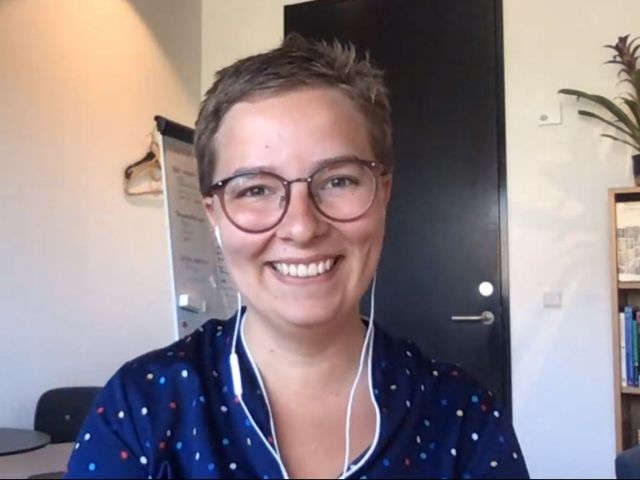Wrong place at the wrong time: The unfortunate fate of upcoming graduates across the globe

The sun is shining, the leaves are growing in their hundreds and thousands on the trees and at last we can pack away our thick coats and jumpers, not to be seen again for a little while.
Summer is here, which of course means one thing – graduation time.
Usually, that would involve well deserved celebrations with family, friends and other students in your study line at a nice restaurant, probably ordering one too many beers. Thankfully, much of this is still possible in Denmark, with almost all the lockdown restrictions now lifted, but this year those celebrations might not be so full of joy and jubilation.
Why? The coronavirus of course.
It won’t come as a surprise to anyone that, despite the swift tackling of the COVID-19 threat, a lot of damage still remains to be repaired in society, even as we gravitate back to normal.
This is not at all the time that anyone would want to be released into the full time job market
Unemployment has risen, the nation’s debt is unavoidably high due to various government aid packages to companies and their employees, and the downturn of certain sectors such as tourism will take a long time to recover.
This is not at all the time that anyone would want to be released into the full time job market, and yet there is little these upcoming graduates can do to improve their situation.
In fact, new graduates fresh out of university will probably find it the hardest to get a job offer now than anyone else. They have the least real work experience and, although the unemployment figures in Denmark aren’t as high as they are in other nations across Europe, businesses of all sizes across certain industries are unlikely to start recruiting again now.
I’ve witnessed this first hand. I’ve seen my friends have their internships planned for this summer, which were likely to have led to a full time job offer, cancelled. A student at another Danish university that I spoke to was supposed to enjoy a unique internship experience in India that he spent a long time procuring.
Instead, his only option would be to do it remotely – which won’t give his resume that international boost. Even I had my summer internships, one at a small firm and the other at a multinational corporation, cancelled. Fortunately, I’ve been given the opportunity to interview for a graduate role with the latter, but I know the competition will be much fiercer than in previous years.
Even they don’t know how many they’ll be able to hire.
However, what makes this situation unique is how truly global coronavirus’ effects are – arguably even more so than the 2008 Financial Crisis.
Simply put - there’s no quick fix, no easy way out
A quick internet search will show you that there are only a small handful of countries that don’t have any cases of coronavirus at all. This means that uprooting your life somewhere new for the chance of better employment opportunities, like young people in Spain and Italy among others have done for years to escape high youth employment, is unlikely to help.
Simply put – there’s no quick fix, no easy way out. Coronavirus is (nearly) everywhere, and everyone will be struggling too.
All of this being said, I know the worst thing to do right now would be to give up hope. It may mean a change of course, but that isn’t necessarily a bad thing. In any crisis, there will always be industries that happen to thrive as a direct result.
This time around it appears e-commerce, pharmaceuticals & big technology to name a few only continue to grow at a rapid pace.
The best thing I can do is to figure out what my strongest skills are and which field would appreciate them the most. It may not be what I originally thought, but who knows, maybe it’ll be even better. Remembering I am from a prestigious University, no matter the circumstances, and that I’ve worked hard to achieve everything I’ve done drives me forward.
Everyone has something valuable to offer that few others have. It’s just a matter of finding out who values that particular skill the most, and applying yourself there.

(Illustration by Emil Friis)
I always believe that everything happens for a reason – it’s certainly been true in my life. Accepting a fallback option, getting rejected for a position I tried so hard for, only to get accepted for another which I barely tried for, but ended up suiting me so perfectly – every time it’s always worked out for the best.
Even coming to Copenhagen Business School for exchange was a last minute change that, at the time, was the last thing I wanted. But now, in this state of the world, there’s nowhere I’d rather be.
My advice is to try and not dwell on what you’ve lost, but instead on what you could gain. Changing paths could be the best thing that’s ever happened to you.
I used to worry about how I’ve never been entirely sure of what I want to do as a profession. Now I see that as a strength, not a weakness – I am flexible and am happy to adapt to anything, even the coronavirus-induced job market volatility.
I hope you’ll be able to do the same, too.



































































































































You write that everything happens for a reason. While I’m not going to argue with you on that, I don’t agree with your reasoning. Just because the options you didn’t consider the best turned out to be great, doesn’t mean that the other options wouldn’t be better. The lost chances may have been the greatest.
It’s a great point that not knowing for certain what one wants to do isn’t a weakness, but gives important flexibility. This whole thing of “do the one thing you want to do” is a big misunderstanding of how we find the great life. Using your strengths to do the things you love is what we should do.
So true. Even though we are graduating this year it feels like everything has been put on hold. This spring I have passed all interview stages of three different companies, with all of them basically giving me a job offer, but at the same time they are unable to promise employment and give me a contract because the company has a hiring freeze. It’s pretty nerve wracking because I don’t know if I should look for other jobs and start all over again in case they all fall through
Thanks for a great article! Natalie, I think your assessment of the situation is spot on. Being flexible and focusing on where you can add value under the current circumstances is the way forward. I am sure you will succeed! Wishing you the best of luck in your job-hunt.